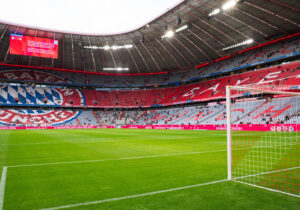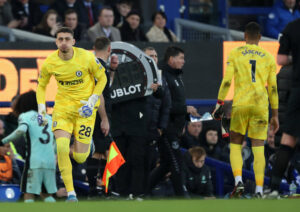Between the financial implications of COVID and relegation, Watford’s finances were undoubtedly going to come under jeopardy. Upon their relegation ahead of the 2020/21 season, they sold over £40 million worth of players to ensure they could stay competitive in a push for promotion without having to get rid of other valuable players (such as Joao Pedro and Ismaila Sarr). However, recent activity suggests the deficits have not been covered just yet, as Vicarage Road has now been agreed as a seizable asset as part of a loan.
Financial Turbulence Leads to Loan With Vicarage Road as Seizable Asset
Watford Borrow from MacQuarie Bank
Kieran Maguire from “Price of Football” has published a document showing Watford have made a deal with the Australian-based bank. In a time where clubs lower down the football pyramid have been docked points for financial struggles, any loan with the stadium as a potential seizable asset is notable and can be alarming.
In the 2019/20 season, Watford operated with a £35 million loss. Even with the sale of players such as Abdoulaye Doucoure, Pervis Estupinan, and Luis Suarez last season, being in the Championship with a sizable wage bill meant covering those losses amongst other debts was always going to be improbable. There are still large sums needed to be coughed up for outstanding payments on previous transfers as well.
What Vicarage Road Loan Means for Watford’s Outlook
Simply put, if Watford maintain their Premier League status, their financial deficits will be easy to erase: £100+ million for this season and next season each would put more than enough money in their pockets. However, if relegation occurs once again, the finances could be under serious jeopardy once more. And, with Vicarage Road seizable if loans do not get paid back, at face value, some fear could be justified.
However, even if relegated, it is still hard to imagine that the Hornets would be unable to eventually pay back the loans. This is a result of them still having lots of valuable players on their books, most notably Joao Pedro and Ismaila Sarr. The Hornets have already rebuffed deals with a value near £40 million for the latter, suggesting a) they are not too desperate yet as they would have sold if finances were completely deteriorating and b) they feel they will be able to get more money for him in the future. Thus, selling Sarr alone, even if for £40 million or slightly less in the event of relegation, would alleviate lots of near and long-term financial issues.
Also, considering the Hornets have many young players out on loan, selling other players currently eating large portions of the wage bill would not leave them in a position where another immediate promotion could not occur.
As of now, the Pozzo’s and Co. will be hoping to maintain their Premier League status, and then most, if not all, financial issues will be all but forgotten about. But, if relegation occurs, there is still reason to not hit the panic button just yet considering the profits the Hornets can garner via player sales. The loan is slightly concerning, but there are justifications for it and no visible reason to ring the alarm bells as of now.
Main Photo






